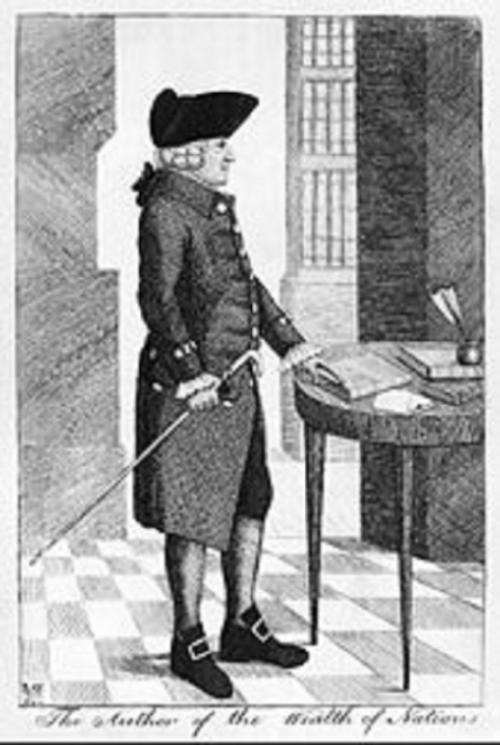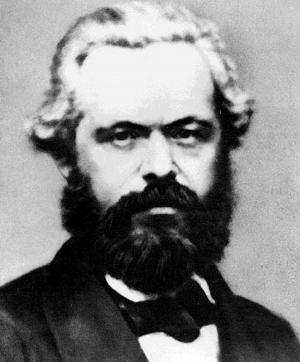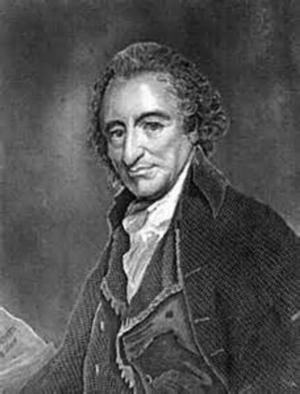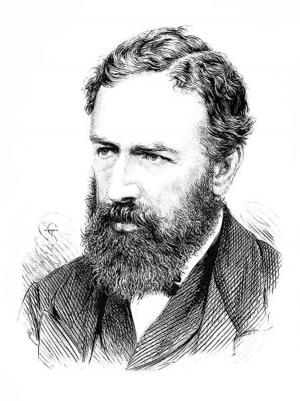The Moral and Political Works by Adam Smith, David Hume, and Herbert Spencer (Illustrated)
Business & Finance, Economics, Macroeconomics, Theory of Economics| Author: | David Hume, Adam Smith, Herbert Spencer | ISBN: | 1230000330541 |
| Publisher: | www.WealthOfNation.com | Publication: | March 30, 2015 |
| Imprint: | Language: | English |
| Author: | David Hume, Adam Smith, Herbert Spencer |
| ISBN: | 1230000330541 |
| Publisher: | www.WealthOfNation.com |
| Publication: | March 30, 2015 |
| Imprint: | |
| Language: | English |
The book has an active table of contents for easy access to each chapter of the following titles:
1. THE THEORY OF MORAL SENTIMENTS – ADAM SMITH
2. ESSAYS MORAL, POLITICAL, LITERARY – DAVID HUME
3. THE PRINCIPLES OF ETHICS: VOL. 1 & 2 – HERBERT SPENCER
The Wealth of Nations was published in 1776 by Adam Smith. What set Adam Smith’s work apart was the follows:
He believed that self-interest is God's providence
If government is away from interfering with free competition, the invisible hand of capitalism would emerge from the competing claims of individual self-interest
Free market problems would be resolved and maximum efficiency reached
The invisible hand of the market in economics is to describe the self-regulating behavior of the marketplace. However, the concept was not phrased in the Wealth of Nations by Adam Smith.
Adam Smith first introduced the concept of invisible hand of the market in The Theory of Moral Sentiments, written in 1759. The idea of markets automatically channeling self-interest toward socially desirable ends becomes the foundation of the theory of small government today in the world.
David Hume was a Scottish historian, philosopher, and economist in the row with the greatest thinkers Adam Smith, John Stuart Mill, John Keynes, John Locke, and Alfred Marshall. Their thoughts had strong influence on building the foundation of the United States and its endeavor of open society.
David Hume in Essays, Moral, Political, and Literary gave a powerful discussion across the important subjects from moral, political, economic, and aesthetic issues to the roles of a government and balance of government power.
David Hume’ influence has been felt in nearly every field of the humanities and social sciences.
Hebert Spencer coined the famous expression “survival of the fittest”.
Spencer’s theory inspired Andrew Carnegie and William Graham Sumner's visions of unbridled and unrepentant capitalism of the United States in late nineteenth-century. Carnegie interpreted Spencer's social theory as justifying merciless economic competition.
Spencer's reputation was not recovered for many years from the interpretative caricatures of many scholars, thus marginalizing him to the hinterlands of intellectual history. Fortunately, recent scholarship has begun restoring and repairing his legacy and theory.
The reasoning by Adam Smith, David Hume, and Herbert Spencer still remains as relevant today as it was then. After more than two centuries, their works still stands as the best statement and defense of the fundamental principles of capitalism. This book is one of the most important ones about the deepest thoughts of moral and free market by Adam Smith, David Hume, and Herbert Spencer three of the greatest thinkers of political economics on the planet.
The book has an active table of contents for easy access to each chapter of the following titles:
1. THE THEORY OF MORAL SENTIMENTS – ADAM SMITH
2. ESSAYS MORAL, POLITICAL, LITERARY – DAVID HUME
3. THE PRINCIPLES OF ETHICS: VOL. 1 & 2 – HERBERT SPENCER
The Wealth of Nations was published in 1776 by Adam Smith. What set Adam Smith’s work apart was the follows:
He believed that self-interest is God's providence
If government is away from interfering with free competition, the invisible hand of capitalism would emerge from the competing claims of individual self-interest
Free market problems would be resolved and maximum efficiency reached
The invisible hand of the market in economics is to describe the self-regulating behavior of the marketplace. However, the concept was not phrased in the Wealth of Nations by Adam Smith.
Adam Smith first introduced the concept of invisible hand of the market in The Theory of Moral Sentiments, written in 1759. The idea of markets automatically channeling self-interest toward socially desirable ends becomes the foundation of the theory of small government today in the world.
David Hume was a Scottish historian, philosopher, and economist in the row with the greatest thinkers Adam Smith, John Stuart Mill, John Keynes, John Locke, and Alfred Marshall. Their thoughts had strong influence on building the foundation of the United States and its endeavor of open society.
David Hume in Essays, Moral, Political, and Literary gave a powerful discussion across the important subjects from moral, political, economic, and aesthetic issues to the roles of a government and balance of government power.
David Hume’ influence has been felt in nearly every field of the humanities and social sciences.
Hebert Spencer coined the famous expression “survival of the fittest”.
Spencer’s theory inspired Andrew Carnegie and William Graham Sumner's visions of unbridled and unrepentant capitalism of the United States in late nineteenth-century. Carnegie interpreted Spencer's social theory as justifying merciless economic competition.
Spencer's reputation was not recovered for many years from the interpretative caricatures of many scholars, thus marginalizing him to the hinterlands of intellectual history. Fortunately, recent scholarship has begun restoring and repairing his legacy and theory.
The reasoning by Adam Smith, David Hume, and Herbert Spencer still remains as relevant today as it was then. After more than two centuries, their works still stands as the best statement and defense of the fundamental principles of capitalism. This book is one of the most important ones about the deepest thoughts of moral and free market by Adam Smith, David Hume, and Herbert Spencer three of the greatest thinkers of political economics on the planet.















